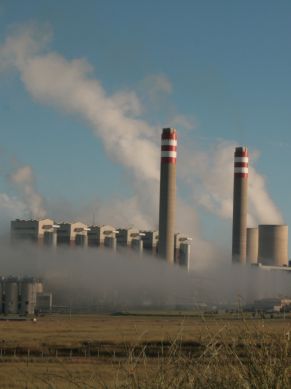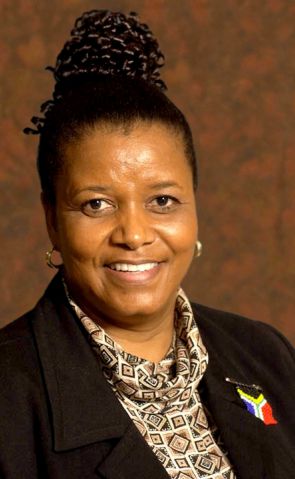|
South Africa Politics | Economy - Development | Environment - Nature South Africa avoids climate leadership
South Africa's CO2 emissions per capita are on par with those of the United Kingdom, and more than twice as high as China's emissions by the same measure. The country is presently responsible for about half of Africa's emissions, with 80 percent of its estimated 400 million metric tonnes of CO2 coming from the energy sector alone.
In its draft energy plan, government expects that by 2030, 48 percent of the total energy demand will be met by coal, 16 percent from renewable sources and 14 from nuclear generation, including the construction of six new nuclear power stations, the first of which would come online in 2023. The draft plan also considers a "low-carbon scenario" which would involve an energy mix of 36 percent coal-sourced electricity, 32 percent renewables and 12 percent nuclear. But planners found that although this scenario would cut carbon emissions by 20 percent more, it would drive up costs by 50 percent than the "balanced scenario" the draft plan endorses. Richard Worthington from the Worldwide Fund for Nature says that in South Africa there is a perception that a sustainable pathway forward puts jobs at risk. "But the evidence is clearly out there that a low-carbon economy is a more labour intensive economy," he says. "The less you rely on the concentrated energy of fossil fuels, the more likely you are to need more people working." Greenpeace and the European Renewable Energy Council have set out a vision for a low-carbon energy future involving increased efficiency, renewable energy sources and expanded reliance on combined heat and power generation. Greenpeace says its Energy Revolution scenario would secure power for economic growth while creating an additional 78,000 jobs in the energy sector by 2030. It would also reduce the country's emissions - 2050 emissions would fall by 60 percent as compared to 2005 levels. An important challenge to green scenarios like this one is how quickly the cost to consumers per unit of renewable energy can be reduced to match the price of polluting energy: higher energy costs for either industry or the country's poor are viewed as unacceptable. Although it is well-endowed with solar and wind energy resources, South Africa has not developed a robust renewable energy industry. The Copenhagen Summit failed to reach a binding agreement on reducing emissions, primarily because of developed countries were unwilling to sign up to new commitments without matching commitments from the rising developing powers. Little progress has been made on this front during 2010 and few expect the Cancun summit to achieve a breakthrough. But with South Africa hosting the 2011 round of climate change negotiations in Durban, Africa - and the world - will be looking for it to demonstrate leadership in reconciling development priorities and the drastic reductions in greenhouse emissions that the world needs. By IPS Correspondents © afrol News / IPS - Create an e-mail alert for South Africa news - Create an e-mail alert for Politics news - Create an e-mail alert for Economy - Development news - Create an e-mail alert for Environment - Nature news
On the Afrol News front page now
|
front page
| news
| countries
| archive
| currencies
| news alerts login
| about afrol News
| contact
| advertise
| español
©
afrol News.
Reproducing or buying afrol News' articles.
You can contact us at mail@afrol.com









